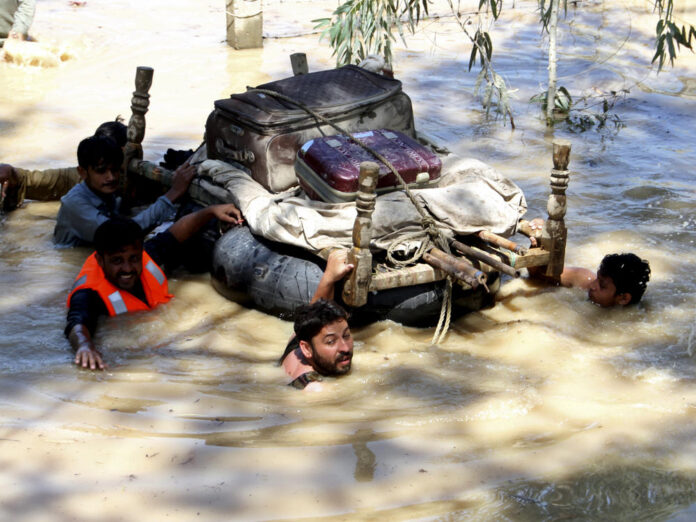Finance Minister Muhammad Aurangzeb acknowledged that Pakistan had failed to develop investable projects to access the $11 billion pledged at the 2022 Geneva conference following the devastating flash floods. This shortcoming has hindered the country’s ability to fully benefit from the international aid promised for flood recovery.
Speaking to reporters after addressing the ICAP conference, Aurangzeb explained that while Pakistan had secured substantial pledges, the lack of bankable projects prevented their effective utilisation. “Let’s accept that we could not come up with investable projects,” he said, referring to the aftermath of the 2022 floods, which caused damage estimated at $30 billion, including reconstruction costs.
Aurangzeb also pointed to the government’s failure to present viable projects to international donors, which led to only partial fulfillment of the flood-related commitments. According to the Ministry of Economic Affairs, only $2.8 billion of the $6.4 billion pledged for project financing has been disbursed, with $4.6 billion of the $11 billion pledged allocated for oil financing.
The World Bank committed $2.2 billion but has so far released $1.6 billion, while the Asian Development Bank (ADB) pledged $1.6 billion and disbursed $513 million. Similarly, China and the Asian Infrastructure Investment Bank (AIIB) promised $1.1 billion but provided only $250 million, citing a lack of credible projects.
Other donors, such as the Islamic Development Bank and Paris Club countries, also made partial disbursements.
Aurangzeb highlighted the continued impact of climate change and rapid population growth as the two biggest challenges to Pakistan’s economic development, calling them major obstacles to achieving the target of a $1 trillion economy.
Regarding future flood risks, Aurangzeb warned that Pakistan’s ongoing failure to address these issues would prevent the country from achieving its goal of becoming a $3 trillion economy by 2047, the centenary of Pakistan’s independence. He also acknowledged the government’s responsibility in addressing these challenges, noting the importance of learning from past flood-related disasters.
The minister also raised concerns over increased water flow from India, which is threatening further floods. He emphasized the importance of addressing flood risks while reflecting on the lessons not yet learned from the 2022 floods, stressing the need for a long-term approach to managing such disasters.




